DIY Leak Detection Tips for Florida Residents
Detecting leaks early can save you from extensive water damage...
Plumbing emergencies can arise suddenly and lead to significant damage if not addressed promptly. Knowing how to handle common plumbing issues can help you minimize damage and manage the situation effectively. Here’s a guide to some of the most frequent plumbing emergencies and practical steps to take when they occur.
What to Do: If you discover a burst pipe, the first step is to turn off the main water supply to prevent further flooding. Open faucets to drain any remaining water in the pipes and relieve pressure. If possible, use towels or buckets to contain the water. Contact a professional plumber immediately to repair the pipe and assess any damage.
Why It Matters: Burst pipes can cause significant water damage to your home, including damage to walls, floors, and belongings. Acting quickly helps mitigate these risks.
What to Do: For minor clogs, you can try using a plunger or a drain snake to clear the blockage. Avoid using chemical drain cleaners, as they can damage pipes and are not always effective. If the clog persists, contact a plumber for a professional inspection and cleaning.
Why It Matters: Persistent clogs can lead to slow drainage, backups, and potential damage to your plumbing system. Addressing them early helps prevent more serious issues.
What to Do: Leaking faucets can often be fixed by replacing worn-out washers or seals. If you’re comfortable with basic plumbing repairs, you can turn off the water supply to the faucet, disassemble it, and replace the necessary parts. If the leak continues, seek help from a plumber.
Why It Matters: Leaking faucets waste water and can increase your utility bills. They can also indicate underlying issues with your plumbing that may need professional attention.
What to Do: A running toilet can often be fixed by adjusting or replacing the flapper valve or the fill valve inside the tank. If you’re unsure how to make these adjustments, a plumber can diagnose and fix the issue.
Why It Matters: Running toilets waste a considerable amount of water and can significantly raise your water bill. Addressing this issue promptly can help you save on costs.
What to Do: If your water heater is not producing hot water, check the thermostat settings and ensure the unit is powered on. For other issues, such as leaks or strange noises, turn off the power or gas supply to the heater and contact a plumber or HVAC technician for repairs.
Why It Matters: Malfunctions in your water heater can affect your ability to access hot water and may indicate more serious issues that require professional attention.
What to Do: If you experience a sewer backup, avoid using water fixtures and contact a plumber immediately. Sewer backups can be hazardous and require professional equipment and expertise to address.
Why It Matters: Sewer backups can pose health risks and cause extensive damage to your home. Prompt professional intervention is essential for resolving these issues safely and effectively.
What to Do: If you suspect a gas leak, evacuate the area immediately and contact your gas utility provider and a plumber. Do not use electrical devices or light switches, as sparks could ignite the gas.
Why It Matters: Gas leaks are dangerous and pose significant safety risks, including fire and explosion hazards. Immediate action is crucial to ensure your safety and address the leak.
What to Do: If you suspect that your pipes are frozen, turn off the main water supply and use a hairdryer or heat lamp to gently warm the affected pipes. Avoid using open flames or high heat, which can damage pipes. If the pipes have burst, contact a plumber for repairs.
Why It Matters: Frozen pipes can burst and lead to extensive water damage. Preventive measures, such as insulating pipes, can help avoid freezing in the first place.
What to Do: If you experience low water pressure, check for clogs in faucet aerators or showerheads. If the issue persists, it could indicate a problem with the water supply or plumbing system, requiring professional assessment.
Why It Matters: Low water pressure can affect daily tasks and indicate underlying plumbing issues. Addressing the cause can restore proper water flow and system functionality.
What to Do: If your toilet is overflowing, turn off the water supply to the toilet and use a plunger to try to clear the blockage. If the problem continues, contact a plumber to inspect the toilet and drainage system.
Why It Matters: Overflows can cause water damage and sanitation issues. Addressing the blockage promptly helps prevent further complications.
Understanding how to handle common plumbing emergencies can help you manage these situations effectively and minimize damage. Prompt action and professional assistance are key to resolving issues and maintaining a functional plumbing system. If you encounter a plumbing emergency, taking the right steps can save you time, money, and stress. For more serious or persistent problems, don’t hesitate to contact a licensed plumber to ensure proper repair and resolution.
Detecting leaks early can save you from extensive water damage...
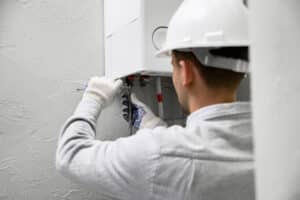
Tankless water heaters are becoming increasingly popular among homeowners looking...
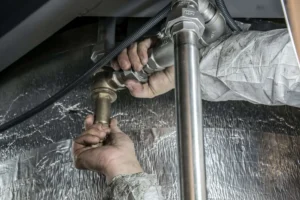
Detecting leaks early can prevent significant damage and costly repairs....
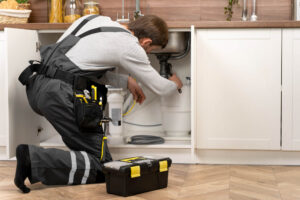
Professional drain cleaning is essential for maintaining a healthy plumbing...
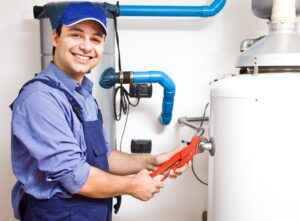
Water heaters are a crucial part of your home’s plumbing...
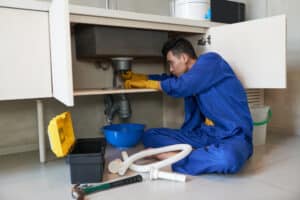
Chemical drain cleaners are commonly used to tackle clogs and...